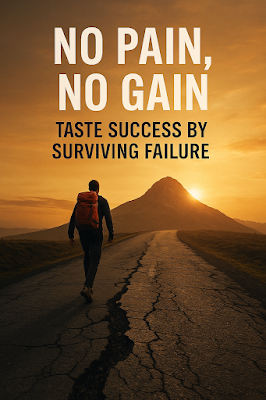In today’s society, it seems that a relentless pursuit of money has become a defining characteristic for many people. In past centuries, wealth and resources were often sought after for survival, security, or community welfare. But in this digital, interconnected age, why has this pursuit turned into what many see as greed? Here, we explore the reasons behind this phenomenon and the impact it has on individuals and society as a whole.
1. Changing Values and
the Pursuit of Status
With the rise of social media and constant digital connections, people have become more exposed to the lives of others, particularly those who appear to be wealthy or successful. Seeing others’ luxurious lifestyles can create a sense of inadequacy and desire to “keep up.”This leads to an endless cycle of comparison and competition, fueling a desire for more wealth.
Social validation now often comes through displays of material success. This trend contributes to greed as people chase the image of wealth, whether they truly need it or not. For some, money represents social acceptance, belonging, and a way to feel respected or admired.
2. The Fear of Economic
Insecurity
Economic uncertainty is another driving factor behind the obsession with money. In recent decades, many people have faced stagnant wages, rising costs of living, and unstable job markets. A generation that watched economic recessions unfold is also wary of financial crises. With such unpredictability, people have become more determined to accumulate wealth as a buffer against future hardships.
In societies where social safety nets are weak, people may feel especially vulnerable to economic changes. The fear of poverty or being unable to meet basic needs, especially in the absence of strong government support, leads people to prioritize wealth accumulation. This fear often encourages them to chase money, not only to meet immediate needs but also to secure future stability for themselves and their families.
3. The Influence of
Consumer Culture
Today’s consumer culture promotes an endless cycle of desire, purchase, and disposability. Corporations spend billions on advertising that encourages people to associate happiness with consumption. Luxury brands, new gadgets, and lifestyle trends flood the media, encouraging people to spend money to achieve happiness or fulfillment. This culture conditions people to believe that satisfaction can be bought, but this satisfaction is temporary, and the quest for the next purchase drives a desire for more money.
Moreover, targeted ads and the psychology behind marketing are highly sophisticated, often exploiting insecurities or desires that people may not consciously recognize. The message is that more is always better, and people come to believe that without enough money to buy the latest and best, they are somehow falling short. Consumer culture, in this way, keeps individuals in a loop where earning and spending become the primary goals of life, reinforcing the pursuit of wealth.
4. Money as a Substitute
for Emotional Security
In an age where people are more connected online but often less connected emotionally, money can become a substitute for emotional fulfillment. Many people find themselves working long hours or in high-pressure environments, which limits their time for personal relationships, hobbies, or relaxation. Some turn to material success as a way to fill this emotional void, equating financial gain with personal happiness.
Materialism often masks a lack of deeper, intrinsic satisfaction. Without strong relationships or a sense of purpose, people may feel empty and believe that money can fill this gap. However, this is a short-term fix, as the emotional satisfaction gained from money tends to be fleeting. This cycle continues as individuals chase after more wealth in hopes of finding a sense of peace and contentment.
5. The Rise of
Individualism and the Decline of Community Values
In modern societies, individualism has become a core value, and personal achievement is often prioritized over community welfare. People are more focused on personal goals, career advancement, and self-promotion, sometimes at the expense of collective well-being. While individual ambition can lead to positive outcomes, excessive focus on personal gain can lead to an attitude of "me first," pushing people to pursue wealth even if it negatively impacts others.
In past generations, community bonds played a significant role in people’s lives, offering emotional support and a sense of belonging. Today, however, there is a greater sense of isolation and competition. As individuals focus more on their own success and wealth, the sense of shared responsibility weakens. This shift encourages people to act out of self-interest, often placing money above empathy, cooperation, or ethical values.
6. Technology and the
Pursuit of Quick Success
With rapid advancements in technology and the rise of the digital economy, people are now exposed to “overnight success” stories from influencers, entrepreneurs, and tech giants. The possibility of becoming wealthy quickly through social media fame or a successful startup has transformed wealth into a goal that appears more accessible than ever. This “gold rush” mindset fuels greed as people chase quick wealth rather than long-term stability.
However, such success stories are often exceptions, not the rule. Yet they set unrealistic expectations and pressure people to take risks or shortcuts to achieve similar results. This focus on speed and instant gratification fosters a culture where the end goal of wealth justifies any means, further promoting a mindset driven by greed.
7. The Psychological
Reward of Accumulation
Psychologically, money is tied to a sense of reward and achievement. For many, accumulating wealth is associated with hard work and success, which can be personally satisfying. This reward system can create an addictive pattern, similar to the pleasure people derive from other achievements. As people experience success, their appetite for more grows, leading them to pursue further financial gain even if they’ve already achieved financial security.
This “more is better” mentality can lead to an endless pursuit, as there is always someone wealthier or another milestone to achieve. Unlike other achievements, wealth accumulation has no defined endpoint, so the drive can continue indefinitely, often at the cost of personal well-being and relationships.
A Balanced Perspective
While the desire for financial security and comfort is natural, modern society often amplifies this into greed. The influence of consumer culture, economic pressures, and digital media creates an environment where people feel pressured to chase money at all costs. This trend not only affects individuals’ well-being but also the fabric of society, often leading to greater inequality and reduced social cohesion.
A balanced approach to money, prioritizing contentment, personal relationships, and ethical values over mere wealth accumulation, can lead to a more fulfilling life. Recognizing the forces that drive the obsession with money can help individuals make conscious choices about what truly brings satisfaction and meaning, allowing them to break free from the cycle of endless financial pursuit.













